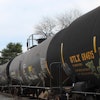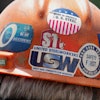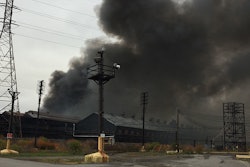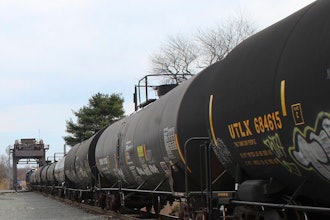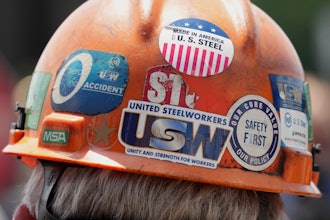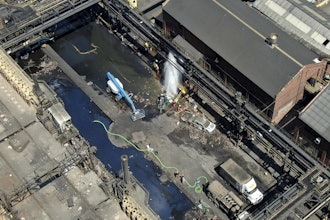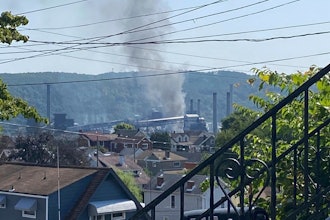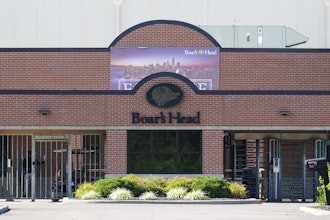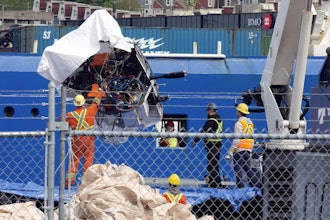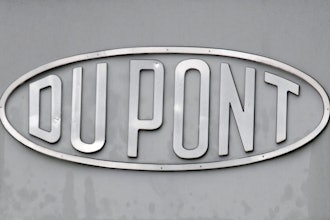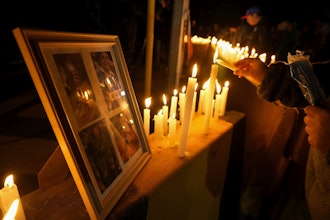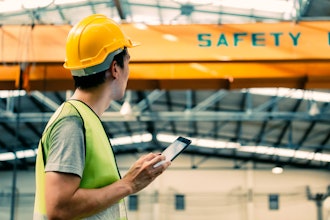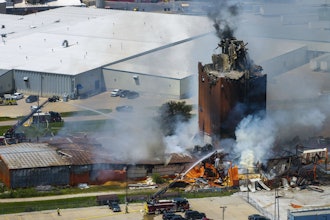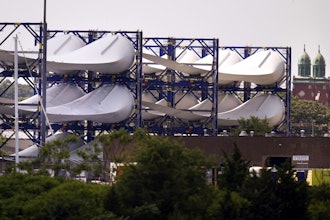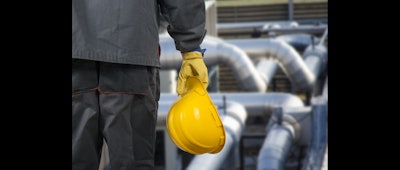
As a trade publication editor, my chances of being injured on the job are minimal. It’s pretty hard for me to get hurt at my office desk. Thus, I’m fortunate that personal safety doesn’t have to be top-of-mind for me at work.
It’s obviously a much different story for anyone who works in an industrial environment. Whether you’re a plant manager, a maintenance technician, mechanic, assembly line worker, forklift operator or anything in-between, safety has to be priority No. 1 at all times.
So while I don’t have to think about being safe in my day-to-day work activities, my work as editor of IMPO has made me very interested in how industrial companies are advancing and improving their safety culture every day.
During October I attended the National Safety Council Congress & Expo in Anaheim, CA, which included dozens of educational technical sessions about safety practices. One session I attended was titled “Safety — Everyone’s Responsibility,” by Charlie Morecraft, and it was probably the most powerful session I’ve attended in all my trade show travels.
Charlie is president & CEO of Phoenix Safety Management, serving as a motivational speaker. He shared a harrowing story of how a refinery accident nearly cost him his life and tore apart his family, all because he took safety shortcuts.
As an Exxon oil refinery operator and 27-year company veteran, Charlie was working overtime on Aug. 2, 1980 changing out a hammer blank on a manifold — a routine job involving relieving excess chemical between pipelines. He wasn’t wearing safety glasses and had the sleeves of his flame-resistant shirt rolled up. Leaking valves resulted in Charlie being covered in liquid and vapors. While making his way to a safety shower, Charlie realized he had left his truck running as he passed it. Those chemical vapors traveled to the truck, which exploded and engulfed the refinery and Charlie in flames.
 Former Exxon oil refinery worker and current motivational speaker Charlie Morecraft presenting to the crowd at NSC on Oct. 17 in Anaheim, CA. (ID photo)
Former Exxon oil refinery worker and current motivational speaker Charlie Morecraft presenting to the crowd at NSC on Oct. 17 in Anaheim, CA. (ID photo)Morecraft spent the next five years in and out of the hospital recovering from third-degree burns that covered 50 percent of his body. Some burns were down to the bone. He endured more than 50 orthopedic and plastic surgeries and other medical treatments.
With the recovery, Morecraft became an alcoholic, depressed and eventually divorced. Tragically, one of his daughters also turned to alcohol. She reached seven years of sobriety when she got bronchitis, and her previous years of alcoholism damaged her too far to fight it off. She died in October 2013.
“I’ll always wonder if I was around for those five years if my daughter would be alive today,” Morecraft said in the session.
Accountability
During his speech, Morecraft stressed the importance of accountability over and over, acknowledging he fully blames himself for the accident. He had his sleeves rolled up at the refinery site because they made him uncomfortable. “These scars are what’s uncomfortable,” Morecraft said at NSC, pointing to his scarred arms. There was a fellow employee that saw Morecraft had left his truck running in an unsafe area and that he had forgotten his safety glasses. “Who was the person who didn’t take accountability for my safety?” Morecraft asked the audience, then answering, “me.”
“Sure, there was a leak that caused the accident, but I wasn’t a defenseless victim.”
Basic lesson — stuff happens. Industrial accidents happen all the time even when no one in the facility is at fault. For example, a power tool kicks back and causes an injury. Faulty manufacturing? Maybe. But it’s all the more reason to protect yourself.
Morecraft discussed how during his time at Exxon, an employee got hit by a lift truck and injured. Exxon did what everyone does — they held an investigation and then people gave suggestions for how to make things safer; things like putting flashing lights on the truck. “Everything except the obvious one — be alert and aware of trucks!” Morecraft exclaimed.
Morecraft shared another story from his first year on the job. In the refinery control room, alarms went off for a major ammonia leak. Morecraft began putting on respiratory equipment when one of the veterans said, “What are you doing? Going swimming?” So Morecraft threw off the equipment and ran out with the rest of the crew to control the leak. Not wearing equipment, they had to actually hold their breath on the way back from the leak. Morecraft couldn’t hold his any longer and took a breath, inhaling fumes that caused him to gag and vomit. “We nearly died out there,” he said. Upon arriving back at the control room, one of the veteran crew members put his arm around Morecraft and said, “Good job, kid.”
Morecraft said it was an example of a culture that breeds false heroes. “I was ‘one of the guys’ because I didn’t wimp out,” he said, adding that occasionally people will call him a hero for having survived his accident. “I’m not heroic. At best I was careless, stupid and selfish,” he told the audience. “I endangered everyone in that facility. A hero isn’t a guy that runs out of an explosion on fire and has to spend the next five years in a hospital.”
Making Safety Personal
Following his recovery and his family life in shambles, Morecraft said he essentially ran away from home and one day wound up at Yosemite National Park. There, he stood out at Glacier Point and started to cry in awe of the view. He said it was at that moment he decided take responsibility for his life and use it for good. He began his motivational speech circuit shortly after. This struck a personal chord with me as I stood at that very same spot at Glacier Point with my wife two days earlier on our honeymoon (we wrapped our honeymoon around the NSC show).
So other than having your employees attend a motivational speech like Morecraft’s, how do you effectively enhance a culture of safety at your industrial workplace for your employees? Morecraft has a simple solution: Make it personal, and make it about family.
“Why is it so hard to ask the guy next to you to wear a seatbelt? To wear safety glasses? It’s the macho thing, and we don’t want to piss anyone off,” Morecraft said. “Piss someone off. You have to be willing to do that."
CEOs can stress safety all they want and safety managers give out gold stars for going so many days without an accident, but the culture still won’t set in. “Make it about their families. Employees don’t care about what the CEO thinks. It has to be about family,” Morecraft stressed. “When’s the last time you changed your ways because someone gave you a shirt that says ‘Work Safe’?”
Morecraft said that safety programs that give out awards for going a certain amount of time without an accident are worthless, and that companies should instead give pro-active awards for employees making a difference — organizing/holding safety meetings or safety training. Don’t give awards just for showing up.
“It’s personal,” Morecraft said with conviction, ending his speech. “It’s just personal.”


